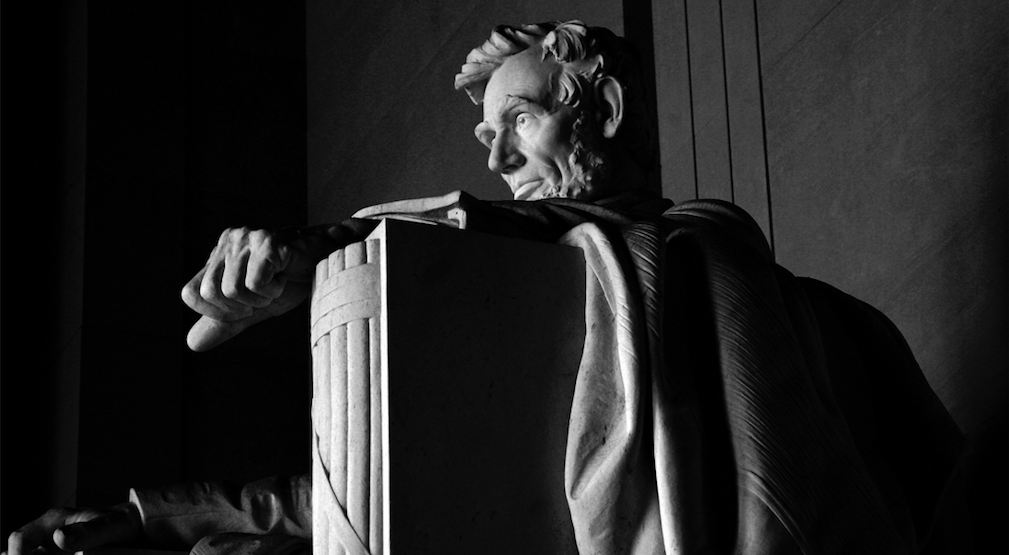By Dr. Mark Scott
 Today is Abraham Lincoln’s birthday. Were he still living he would be 208 years old. We know him as the 16th president of the United States and also as the Great Emancipator. He not only signed a freedom document, he also saw the country through a terrible civil war. Freedom is not easy. The birth of a new nation comes with a huge price.
Today is Abraham Lincoln’s birthday. Were he still living he would be 208 years old. We know him as the 16th president of the United States and also as the Great Emancipator. He not only signed a freedom document, he also saw the country through a terrible civil war. Freedom is not easy. The birth of a new nation comes with a huge price.
Our lesson picks up where last week’s lesson left off. The churches in Galatia had their harmony and freedom threatened by people who felt compelled to have a “Jesus plus” faith (Jesus plus the Law, Jesus plus circumcision, Jesus plus special religious holidays). But Jesus plus anything is a minus. Jesus alone is sufficient to save to the uttermost (Hebrews 7:25).
Freedom Is Threatening
Galatians 4:8-11
As odd as it sounds, there were some slaves in Paul’s day who were doctors and lawyers. They had sold themselves into slavery so others would take care of them. Freedom is threatening, and some people cannot handle it. The believers in the churches of Galatia were both Greeks and Jews and both were likewise threatened by Christian freedom. They were tempted to turn back to paganism or to their former religion in Judaism.
Paul was upset about this. (In fact, his angst about this is seen in all three sections of our text—verses 11, 12, and 20.) Why would people who were once enslaved desire to go back to slavery? The answer is that freedom is threatening. The Greek regression is in verses 8 and 9. Before the Greeks in Galatia knew God (before they became believers) they were slaves to pagan influences. Paul referred to these false gods as not gods. There is only one true God (1 Corinthians 8:4-6). They were turning back to the weak and miserable forces (we saw this expression in our lesson last week in Galatians 4:3). We might think of them as the ABCs of paganism. The Jewish regression had to do with observing special days and months and seasons and years. Carving out sacred time to celebrate faith is one thing. But keeping festivals as a term of salvation is quite something else. Returning to paganism or Judaism bothered Paul. He felt as if he had wasted his ministry (labored in vain) on the Galatians.
Freedom Is Frustrating
Galatians 4:12-16
There is some significant self-disclosure by Paul in this paragraph. One can feel his personal frustration with the Galatians. He pleaded with them earnestly. The word translated plead means “to make a specific request.” It is one of the words for prayer in the New Testament. Paul prayed that the Galatians would experience total freedom in Christ like he enjoyed. Paul himself was once enslaved in Judaism (Philippians 3:4-6). But as one freed in Christ, he called the churches to become like him.
Paul took the churches back to when they were converted (Acts 13–14). Their reception of him as one freed in Christ was remarkable. Even though Paul referenced his illness (about which we know very little), he mentioned that the Galatians received him like an angel or Jesus himself. Their devotion to Paul was so strong they would have traded their good eyesight for Paul’s bad eyesight (see also Galatians 6:11). The Judaizers had turned the people away from the apostle who had taught them the truth of freedom in Christ. Of the making of rules there is no end, and Paul was frustrated that the Galatians seemed to want to go back to rules for the sake of rules.
Freedom Is Hard Work
Galatians 4:17-20
The easy road is rules. The harder road is freedom. Paul noted that the Judaizers had bad motives. They were trying to take undue advantage of the Galatians by stealing them away from Paul and freedom in Christ. Paul commended zeal. Zeal with knowledge is a wonderful thing. Zeal that creates unity is also good. But zeal without knowledge and zeal that is divisive is terrible.
The last two verses of our text drip with emotion. The real heart of the apostle Paul can be seen. These two verses are high watermarks in the passion of Paul. He appealed to them tenderly (My dear children). The metaphor that he used is that of a woman in labor. Paul was like a mother in the pains of childbirth until Christ would be formed in them (see 1 Thessalonians 2:7). Forming Christ in people is hard work, and sometimes it leaves us downright perplexed.
Both Paul and President Lincoln learned that freedom isn’t easy. But it is worth it.
Dr. Mark Scott teaches Preaching and New Testament at Ozark Christian College in Joplin, Missouri.
Based on International Sunday School Lesson, © 2012, by the Lesson Committee. Scripture quotations are from the New International Version ©2011, unless otherwise indicated.



Comments: no replies